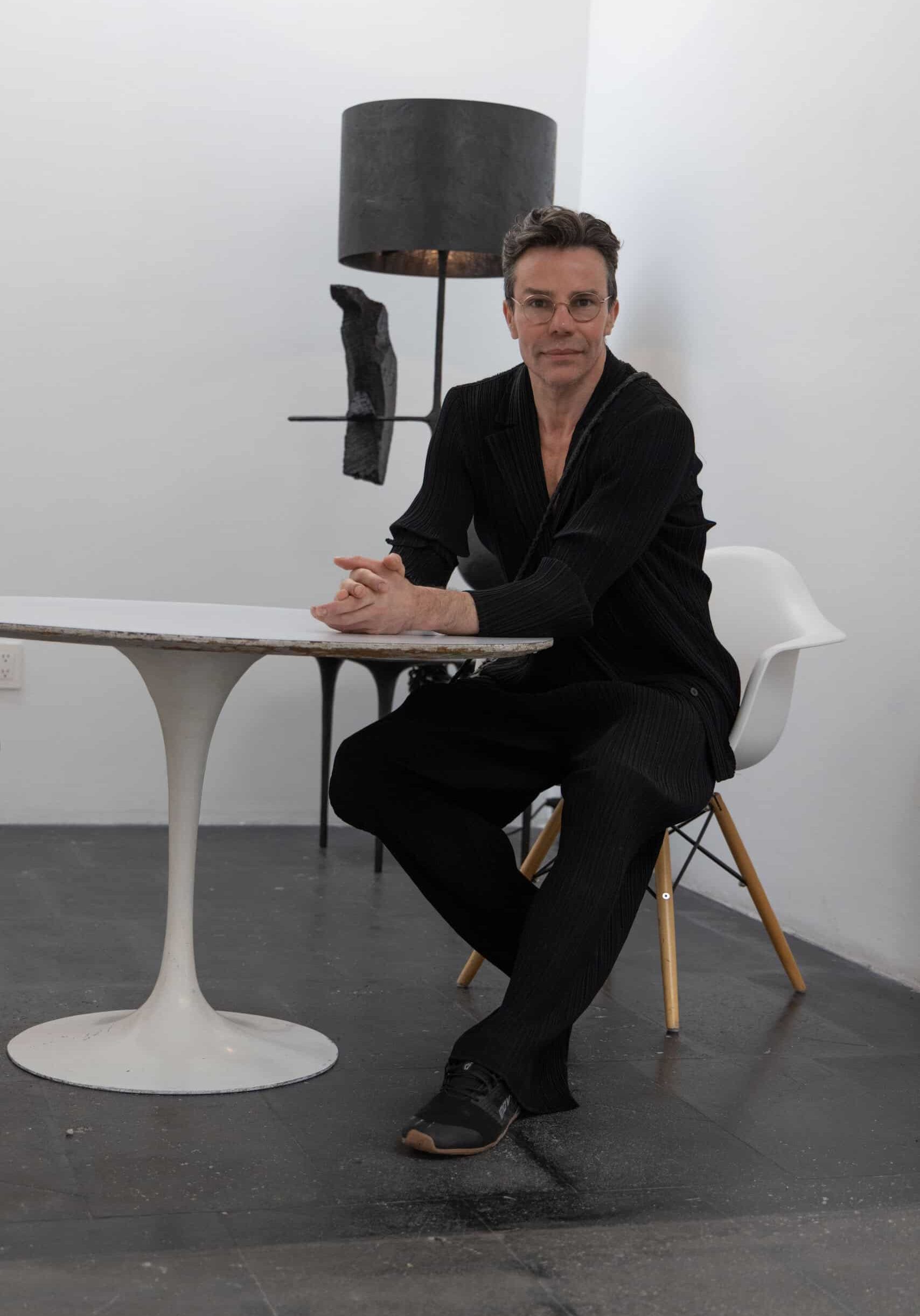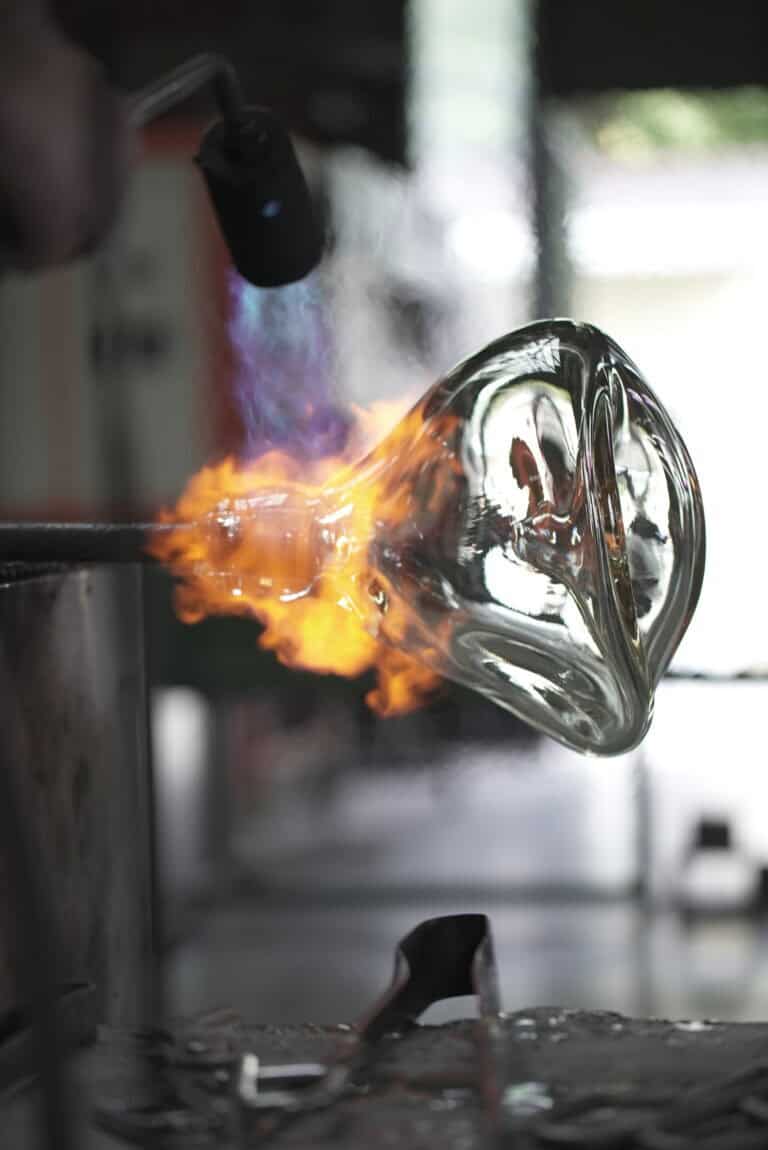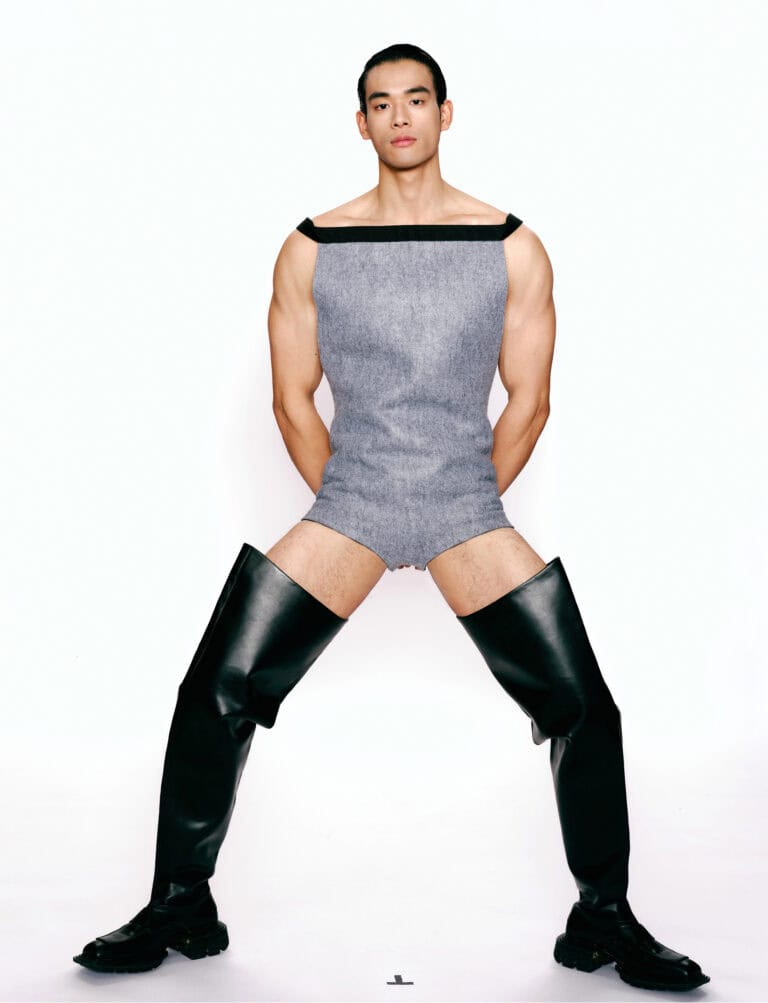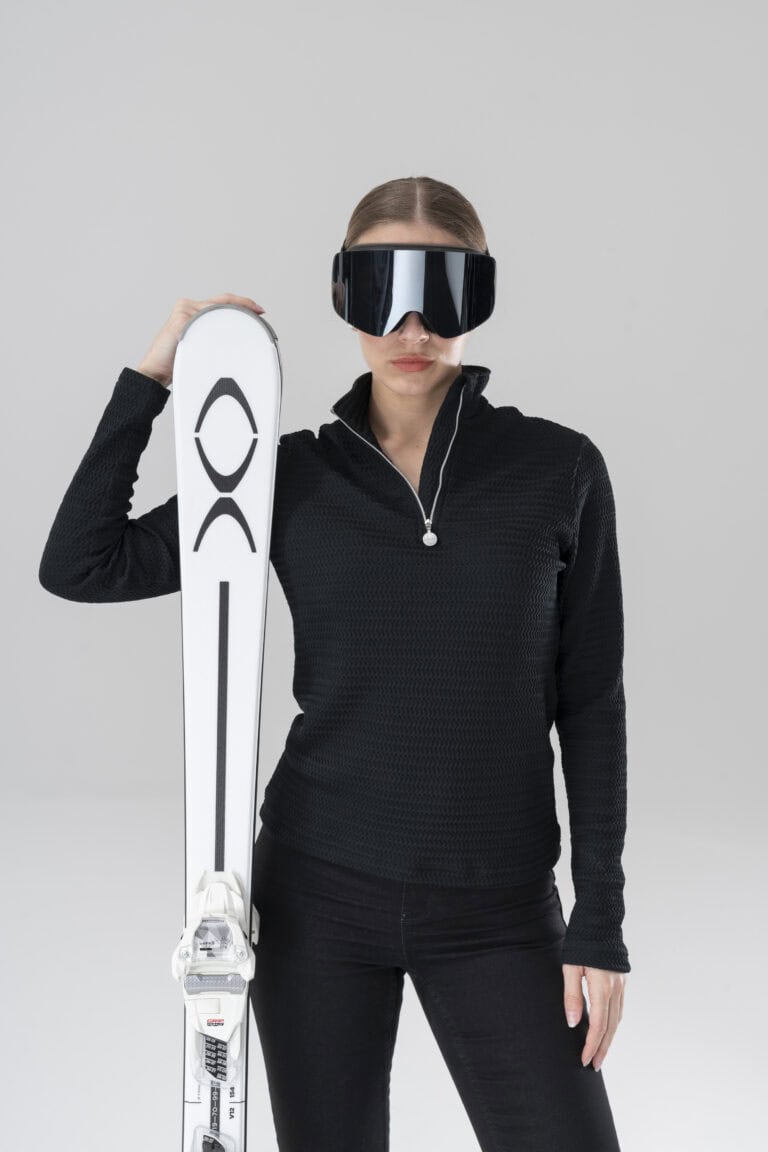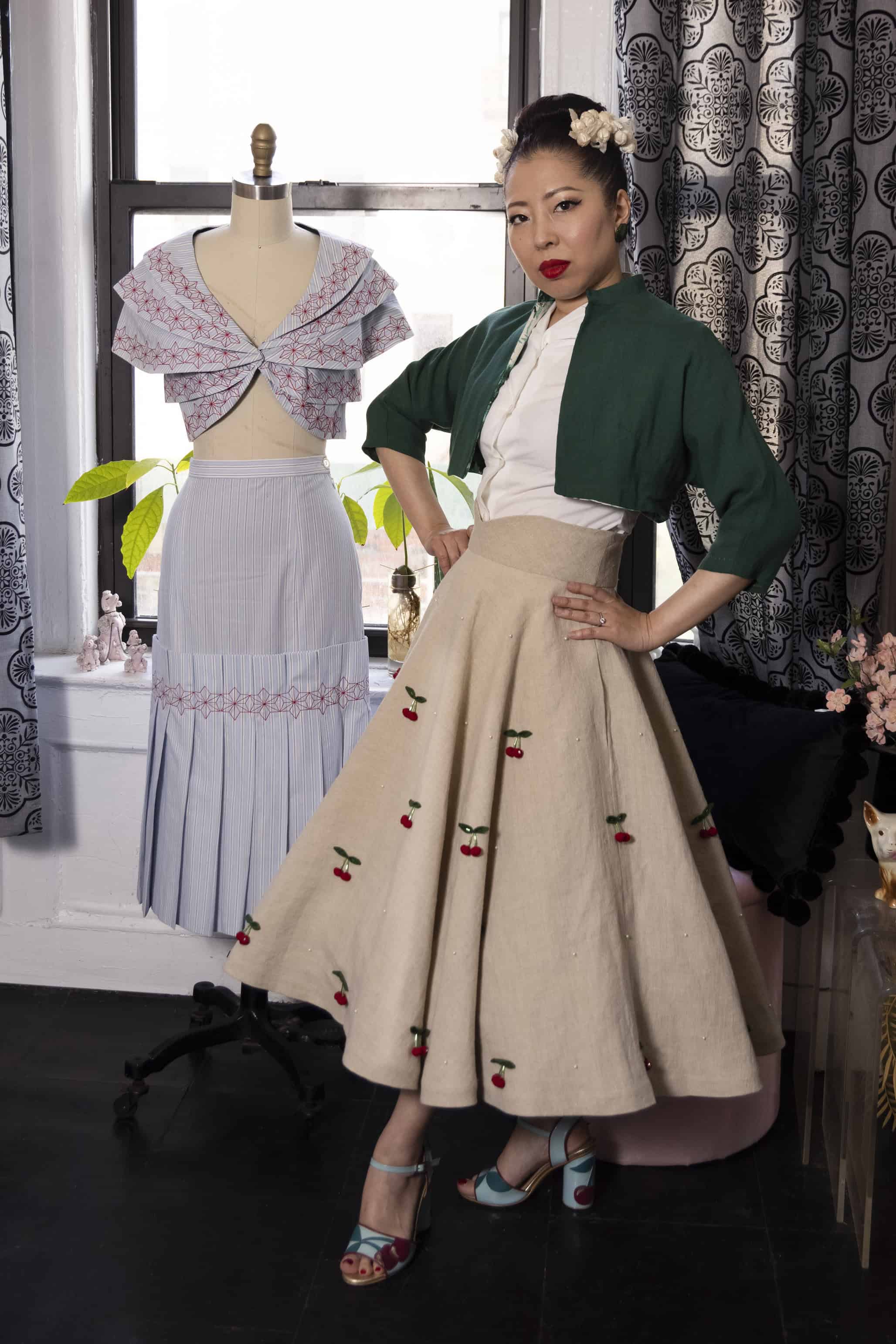
Culture, Creativity, Consciousness: An afternoon with Maki Obara of Maison Murasaki
Patrick Duffy
Meet Maki Obara, Founder of Maison Murasaki, an environmentally conscious Demi-Couture fashion label based in New York City. Obara is on a mission to tell a story about the beauty of her culture through the lens of sustainable fashion design. Fascinated by details and a master of precision her creations are truly one of a kind. As each creation reflects the rich history of Japanese heritage, Obara is storytelling through creating her own prints, textiles, and patterns giving the wearer of each unique piece a lesson in inclusivity, mindefulness, and an opportunity to participate in the future in consciously created couture.
How did you construct the vision for Maison Murasaki?
Maki Obara: The main reason why I struck out on my own in 2011 was that I was very much disillusioned by the fashion industry. Originally, I was planning on building a business built on consultancy to help launch designers that are talented but struggling. But then I realized my passion for creating was strong, and I had to lead by example to show that you don’t have to play by the toxic rule book to make it in the fashion industry.
It was a naïve yet strong ambition, but it remains one of the goals for Maison Murasaki. It is also one of the reasons why I didn’t use my own name for the company. The name Maison Murasaki is inspired by the Murasaki Shikibu (Lady Murasaki). She was the first female novelist in 11th century Japan, who wrote The Tale of Genji, and the novel is considered to be the oldest novel in history, still charting the best seller’s list in this modern age. I named the company after Lady Murasaki, to pay homage to my Japanese heritage, but most of all, to celebrate the strong, intelligent, innovative creators everywhere, who make the world go around. It takes a lot of working together with people when you want to disrupt the current state and construct a new system and putting my own name on that company didn’t make sense. In recent years, a new vision I have been nurturing for a while changed my life and career. My self-funded, fully self-operated one-woman fashion business Maison Murasaki was at a point of adding an employee and expand into bridal. Although I have been conscious of being ethical and cared about the environment from the start, the increasing discomfort was undeniable. It was not enough just to carry on creating beautiful products when there was harm done to the earth, including the people, in the process. I took a year off to study the environmental impacts of fashion, and here we are with renewed intentions and clear business practice in 2021. The mission is to help forge a path, so there is no category such as ‘Sustainable Fashion’ because it becomes the norm. It must become the standard. We need to create an industry where customers do not have to think about the environmental and ethical impacts of what they are buying, and where the creators do not have to limit their creativity because of the ethical and environmental issues we are facing today.
How does your own identity and/or cultural identity play a role in the creation of your work?
Maki Obara: Whenever I create, it is purely a manifestation of myself. I give you a piece of my soul when I hand you something I designed. My emotions, the state of the world, my experience, how I want one to feel in those creations, messages I want to convey, and of course my Japanese heritage heavily comes into play in the design process. I am always an outsider. I never felt like I belonged. Being born and raised in California, I have lived and worked in Japan, UK, and now based in NYC. People don’t see me as an American, and the Japanese don’t see me as Japanese. I never felt understood. I never felt like I can express myself. Until I found a method of communication that was fashion and textile design. So, with every line I cut, every seam I sew, every applique motif I make, it becomes a natural clash of cultures and emotions. Maybe I have a fascination with the traditional beauty of Japan because I am an outsider and an insider at the same time. Maybe it’s just my blood calling. I don’t know. All I know is that it is my beautiful heritage that I am proud of, and I intend to enjoy, respect, be inspired by, and hopefully help bring it into the future in my own way to preserve it.
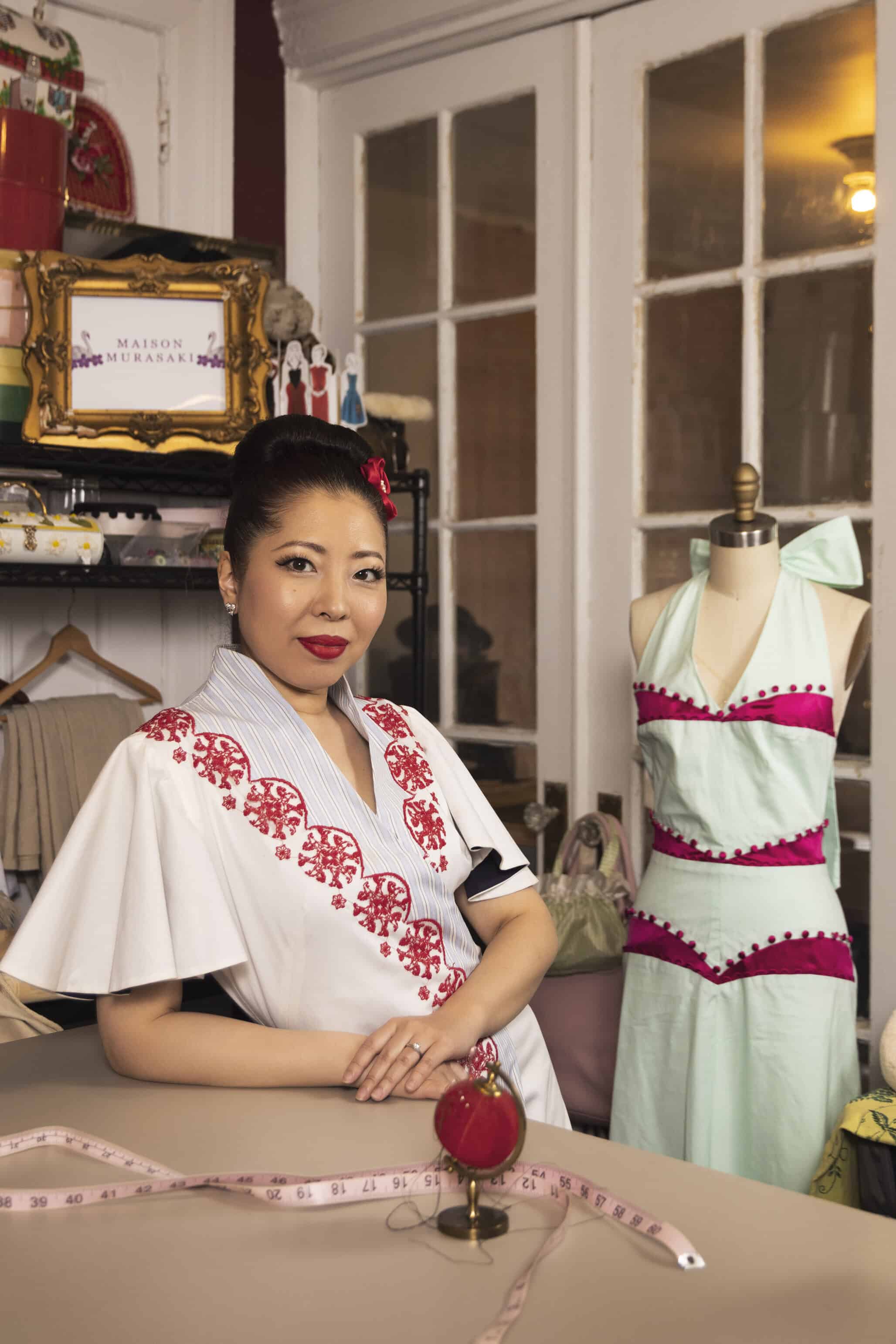
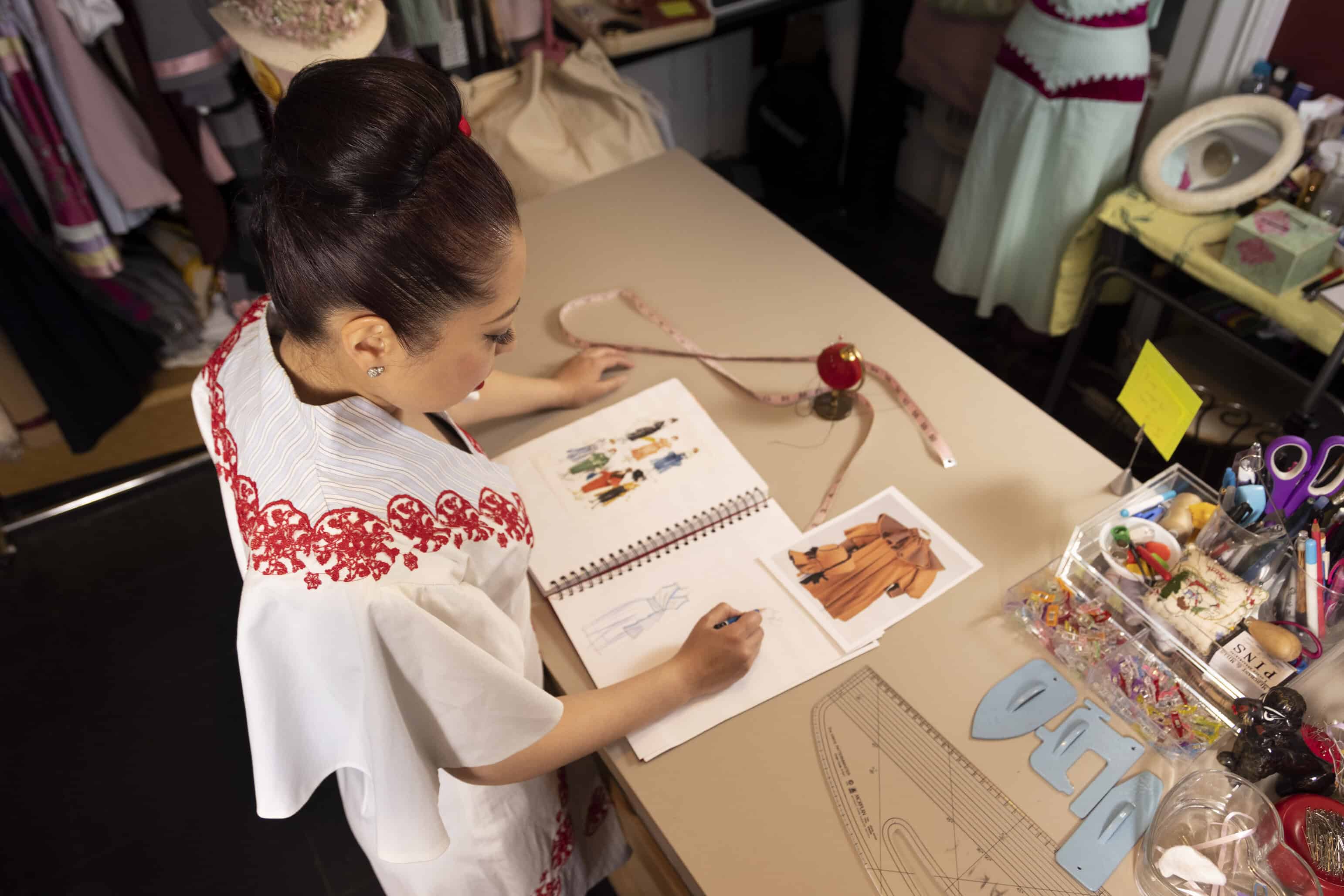
Have you felt discrimination over the course of your career in fashion?
Maki Obara: Yes. As an Asian person, and as an Asian woman. It hasn’t been an easy road, even with the privileges I’ve had. At the end of the day, even if I did everything right with the best education and a career of working for famous fashion houses, even with all the hard work and ideas, it was never enough. This changes a person. The very sad part about this is, the fact that how deeply rooted systemic discrimination and racism is, and it was in my head as well. I had no vocabulary to pinpoint the bitter taste in my mouth until recent years. The un-learning and acknowledging of my own behavior has been hard, only made harsher by re-living some traumas. But that is the only way to grow. I can start listing up the experiences, but at this point, the most important part is to not let that happen anymore. To anyone.
Part of what you are trying to do with your work is educating people about misappropriation, why is this important?
Maki Obara: The hot topic under the words ‘Cultural Appropriation’ is so complicated it needs a microscope. In order to understand it, you definitely need to study history, and it is strongly rooted in colonialist ideas. When you use other culture’s elements disrespectfully for your designs and profit off them, or wear it as a costume, or straight up make a business out of another culture as if it’s your own, you are not only stripping people of their culture but of their own history as well. This is a violation. Culture is history, it’s the soul of the people, and it is what makes us humans. In my mind, a violation of culture is a violation of the people’s souls. If you can’t come up with something uniquely you and have to steal, don’t do it. We literally don’t have enough resources for that. But, at the same time, I strongly believe that when cultures clash in the right way, for example, a proper collaboration with a designer and the indigenous community who has protected that craft for hundreds of years, we progress as a global community. The culture will be extremely rich, and the diminishing craft along with their livelihood can be restored. Imagine a world like that. Imagine a world where we can enjoy each other’s cultures in a rich and respectful way. That is heaven on earth to me, and I just want to see this happen in my lifetime.
What does “Beauty” mean in the ‘sustainable’ world of fashion?
Maki Obara: This is a wonderful question. First of all, we all need to acknowledge the fact that “beauty” can not be defined. You shouldn’t argue over what is beautiful, because it’s different to every single person on earth. Let’s stop making a certain standard the “Beauty” in any sort of industry. It is unhealthy, unnatural, and unsustainable. The fashion industry is very much responsible for setting these unnatural toxic beauty standards, so we have the responsibility and/or the power to shift it to one that is broader, so it includes everyone. We also have the ability to set a meaning towards what a truly beautiful creation means from now on. A truly beautiful creation, whatever the aesthetic is, from upcycled designs to ready-to-wear to couture, has to be made with careful consideration towards the environment which includes all humans. I know all this is easier said than done but our future on this earth is at stake, and we all need to do whatever we can to see more of its beauty. The beauty of the earth and its inhabitants. And that should be the standard for what “beauty” means in not only the sustainable fashion world but in the fashion industry itself.
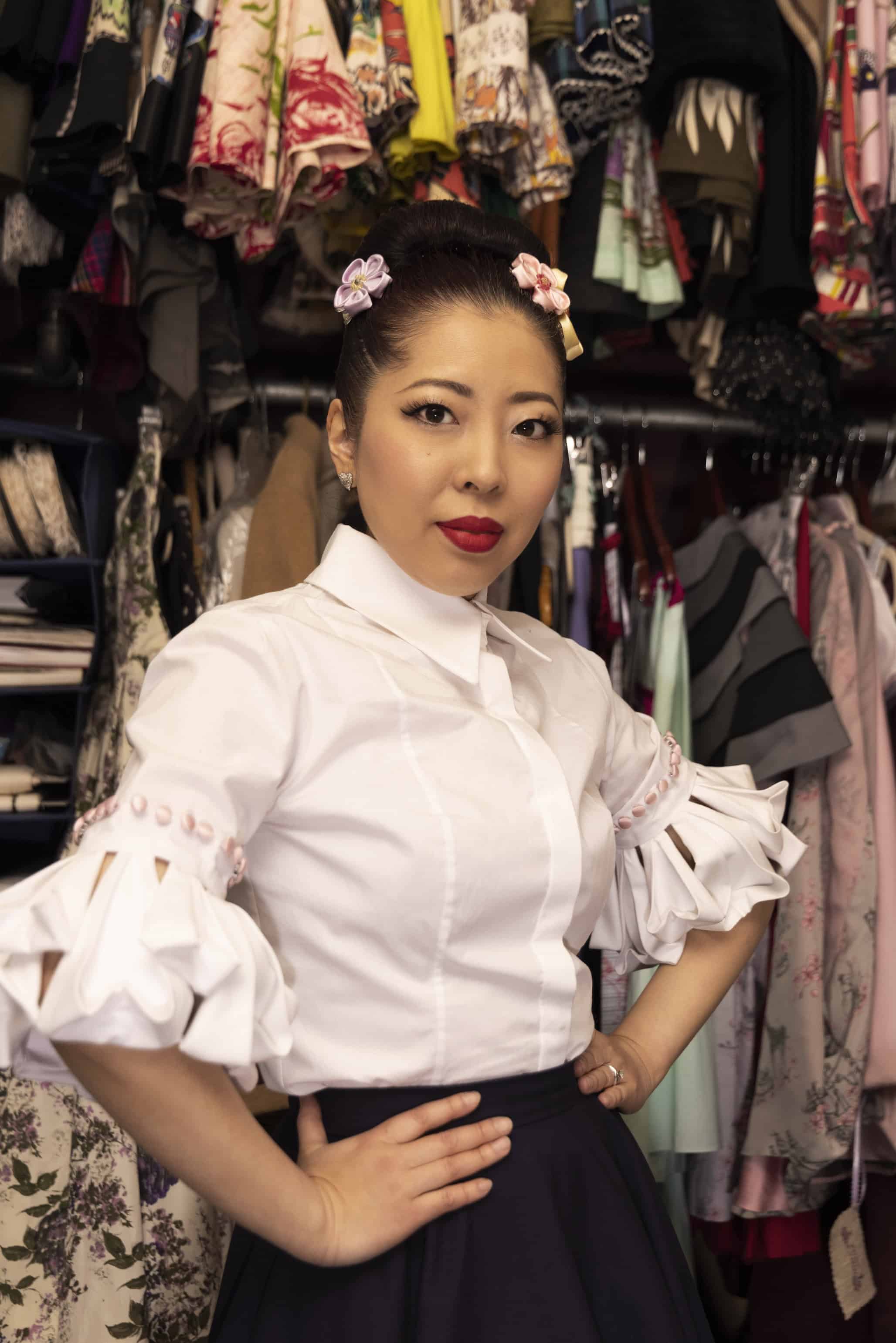
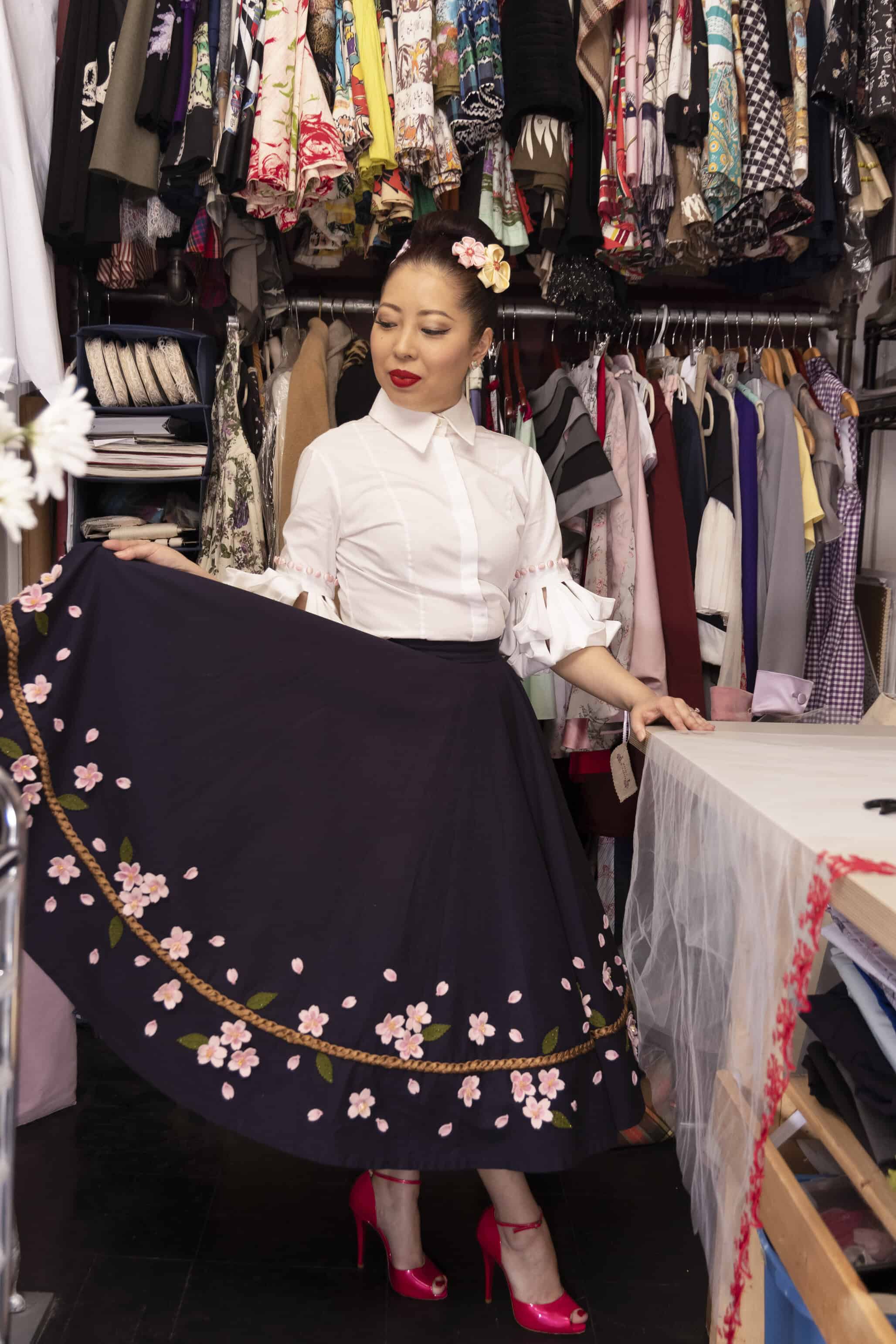
You are a couture designer with a love of materials and innovation, what’s your vision for Maison Murasaki in the future?
Maki Obara: I consider Maison Murasaki to be a platform and I call it an experimental line. It includes innovating in ways to do business ethically and environmentally. I developed a passion for Bio-materials/Bio-fabrication, which is material design using biology developed with the mindset of preserving the environment, and I consider it to be crucial to developing a fashion industry that has a future. As I have been researching and developing new materials myself as well, I realized a gap between the biodesign world and the design industries. I see Maison Murasaki becoming the bridge. I would love to collaborate with material designers and help accelerate both industries. There is a couple of ideas brewing already, which is exciting! Naturally, in the near future, I would like to bring in the element of traditional craft. There are so many brilliant traditional crafts that are extinguishing in Japan that are sustainable to start with. I see so much innovation and beauty in them, and it would be an honor to build on that. Collaboration is the key to the future of Maison Murasaki for sure and I always get a good adrenaline rush when an opportunity shows!
What has life taught you thus far that helps keep you going?
Maki Obara: That every one of us on earth is one of a kind, and there is something only you can do to make it a better place. You are the only one on earth who has that set of life experiences and DNA. How can you use that for the good in your own unique way? I think life is about figuring that out and executing it for your own happiness and for others. I keep on going, because I believe everything is connected, and there is a role for me to play in leaving something good for the future generations, however big or small that may be. People have laughed at me for not quitting. Because I haven’t been ‘successful’ in the conventional sense. Because Maison Murasaki is not on everyone’s lips. But what they don’t realize is, that is not what I am aiming for and I am only just about to start on my life work using Maison Murasaki as a vessel. And of course, the people who support me keep me going. The people who are close to me are my inspiration and motivation in both life and work. I believe in putting our powers together to break the system and bring forth a beautiful future.
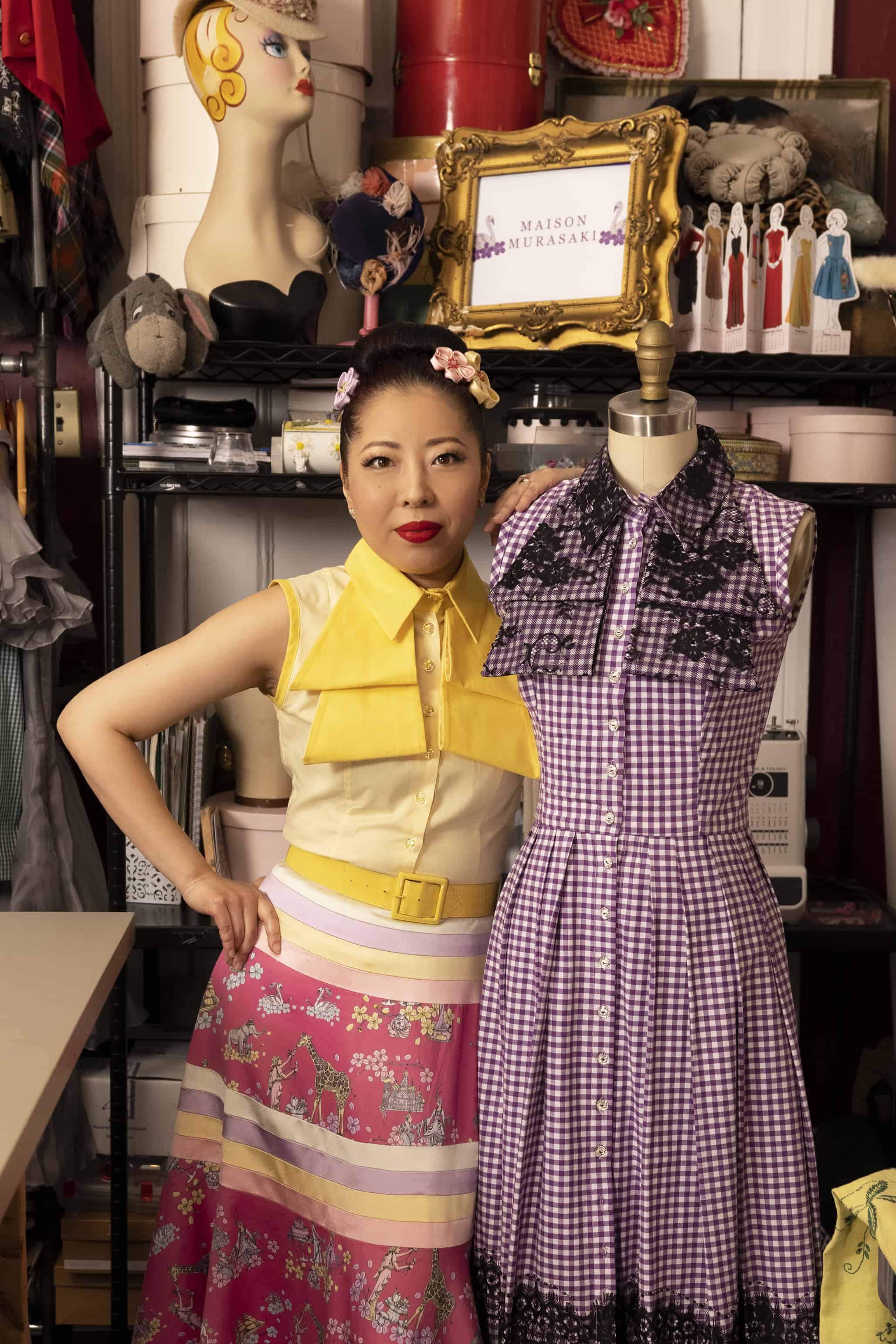
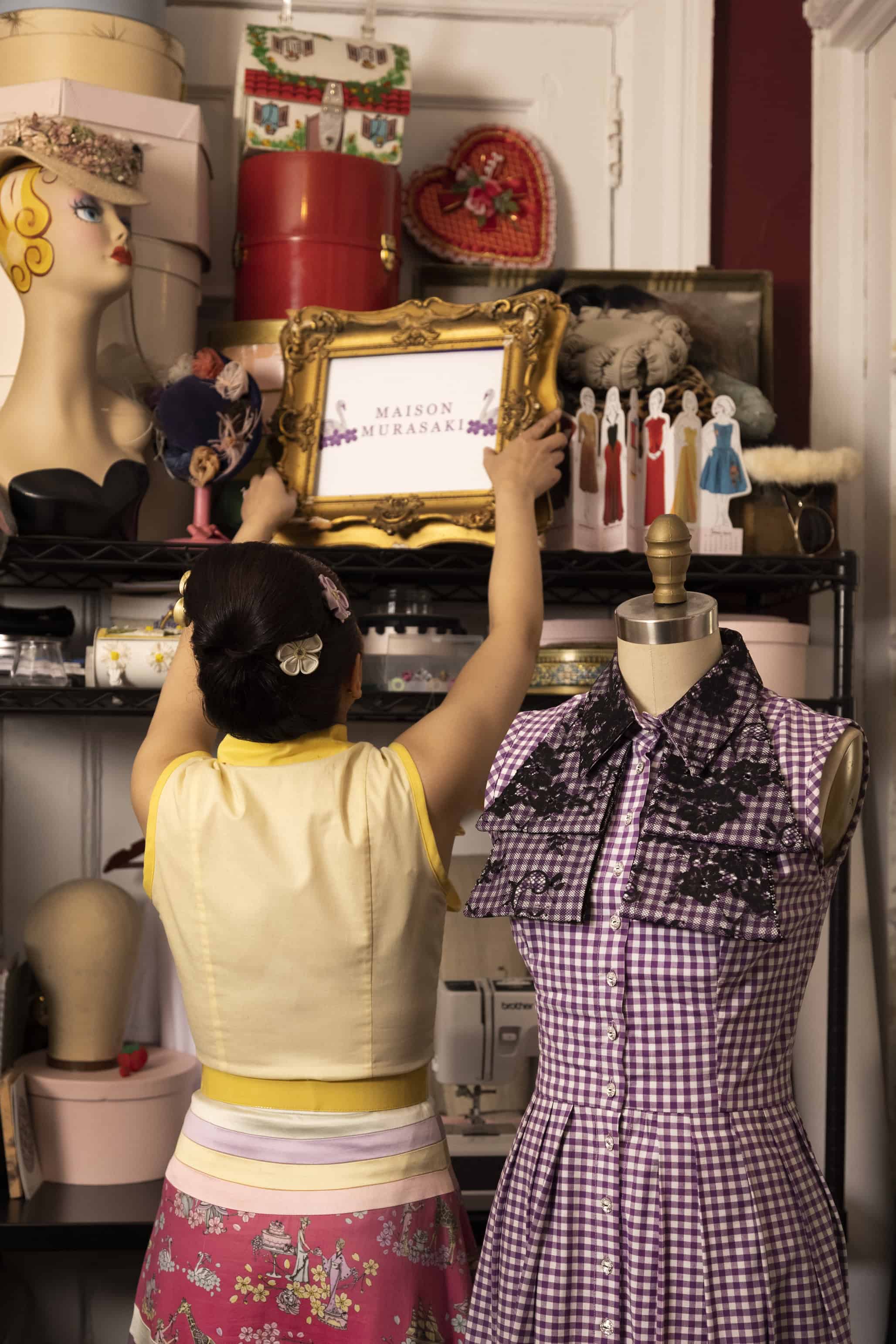
Maki Wears: Maison Murasaki Custom Demi Couture
Shoes: Her Own + Butrich
Photographer: Benyde Walker
Stylist: Cannon Media Group
Stylist Assistant: Abigail Adams
Production: Cannon Media Group + Global Fashion Exchange
Production Assistant: Yassy Diaz
Share this post
Patrick Duffy is the founder of Global Fashion Exchange, a company catalyzing positive impact through strategic consulting roadmaps focusing on supply chain transparency, worker rights, responsible production for B2B as well as consumer facing programming and community building focusing on aligning people or communities with the SDGs.
Experience developing networks and activating ideas, guiding creative teams globally, and working with institutions like the Victoria and Albert Museum and UNESCO, and iconic spaces such as Federation Square Melbourne, Madison Square Garden, Bryant Park in New York City, and The Dolby Theatre in Los Angeles.
Patrick has produced clothing swaps all over the world from, with GFX Active in over 100 countries. Each GFX event focuses on building community, education and transformational business models. Partnering with global brands, key stakeholders, and academia to help create awareness and positive impact through conscious consumption
Patrick harnesses the power of media to create positive social and environmental impact. Through storytelling, education, and advocacy, he raises awareness, inspires action, to catalyze change. By highlighting issues and solutions, Patrick creates strategic campaigns to engage audiences, influence attitudes and behaviors, and contribute to a more sustainable and just world. Additionally, Patrick is the Sustainability and Positive Impact Director of Paris based @IRKMagazine and Editor In Chief of @IRKLiving
Patrick has produced and co-curated events and marketing/PR campaigns for recognized brands across art, fashion, and tech spaces including @virginhotels @britishfashioncouncil @mspdid @moethennessy @microsoft @lagosfashionweekofficial @perutradenyc @fashionimpactfund @istitutomarangonidubai @peaceboatus @lisboafashionweek and more spanning 15 years and hundreds of events in 5 continents.
Read Next

